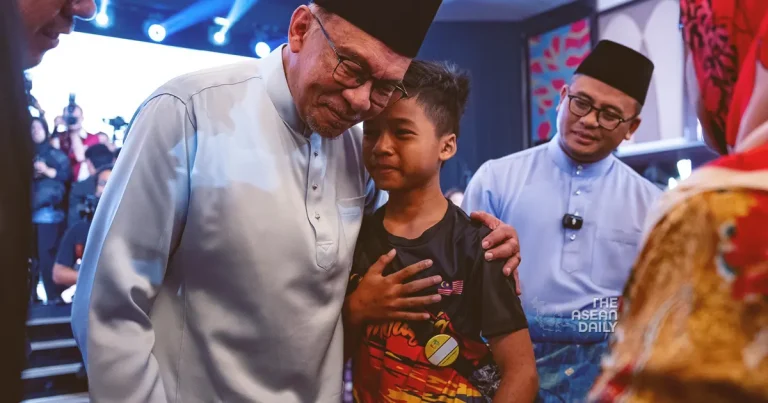14-3-2024 (KUALA LUMPUR) Malaysia is set to address a long-standing gender bias in its constitution next week, as announced by Prime Minister Anwar Ibrahim. The amendment will grant automatic citizenship to foreign-born children of Malaysian mothers and their non-Malaysian spouses, marking the end of a prolonged struggle for many families.
Currently, under a law dating back to 1963, only Malaysian men who marry non-citizens and have children abroad can pass on their citizenship. However, children born to Malaysian mothers in similar circumstances are denied this right.
Prime Minister Anwar, speaking during an official visit to Berlin, labelled this constitutional provision as erroneous. He confirmed that the cabinet had approved the amendment, which would be tabled in parliament next week, asserting that the matter was now resolved. “The issue lies in the term ‘parent’ in the current constitution, which has historically referred to the father. We acknowledge this is unjust. ‘Parent’ should encompass both father and mother,” Anwar stated.
The proposed amendment will impact Article 14 of the constitution, which currently excludes mothers when conferring citizenship to individuals born outside of Malaysia.
Equality Now, an international rights group, highlighted Malaysia as one of six countries globally, including the Bahamas, Barbados, Iraq, Liberia, and Mauritania, that perpetuates gender discrimination by denying women the equal right to pass on citizenship to their children born abroad.
Anwar addressed this matter during a Ramadan dinner in Berlin, responding to a Malaysian woman’s query regarding her children’s lack of Malaysian citizenship due to this provision.
The amendment requires a two-thirds majority vote in parliament, a threshold that Anwar’s coalition comfortably surpasses, instilling confidence in its passage.
In 2020, advocacy group Family Frontiers successfully sued the government over the gender bias in citizenship laws. However, the appellate court overturned the ruling in 2022 following a government challenge.
Despite the pending constitutional amendment, Home Minister Saifuddin Nasution assured that his ministry had resolved all citizenship cases related to this issue, claiming that Family Frontiers’ struggle was now moot. However, this assertion contradicted the experiences of many Malaysian mothers, as evidenced by ongoing citizenship application processes, sparking concern and confusion.
The uncertainty surrounding citizenship status poses significant challenges for affected families, impacting daily activities such as hospital visits and schooling. Private education costs considerably more for non-citizens compared to the nominal fee of 1 ringgit (20 US cents) for citizens. Additionally, non-citizens are excluded from attending government schools, further exacerbating the educational burden on parents.
Bina Ramanand, lead coordinator of Family Frontiers, called for immediate citizenship for affected children, stressing that further delays were unjustifiable. “They have endured enough hardship; swift action is imperative,” she affirmed.




